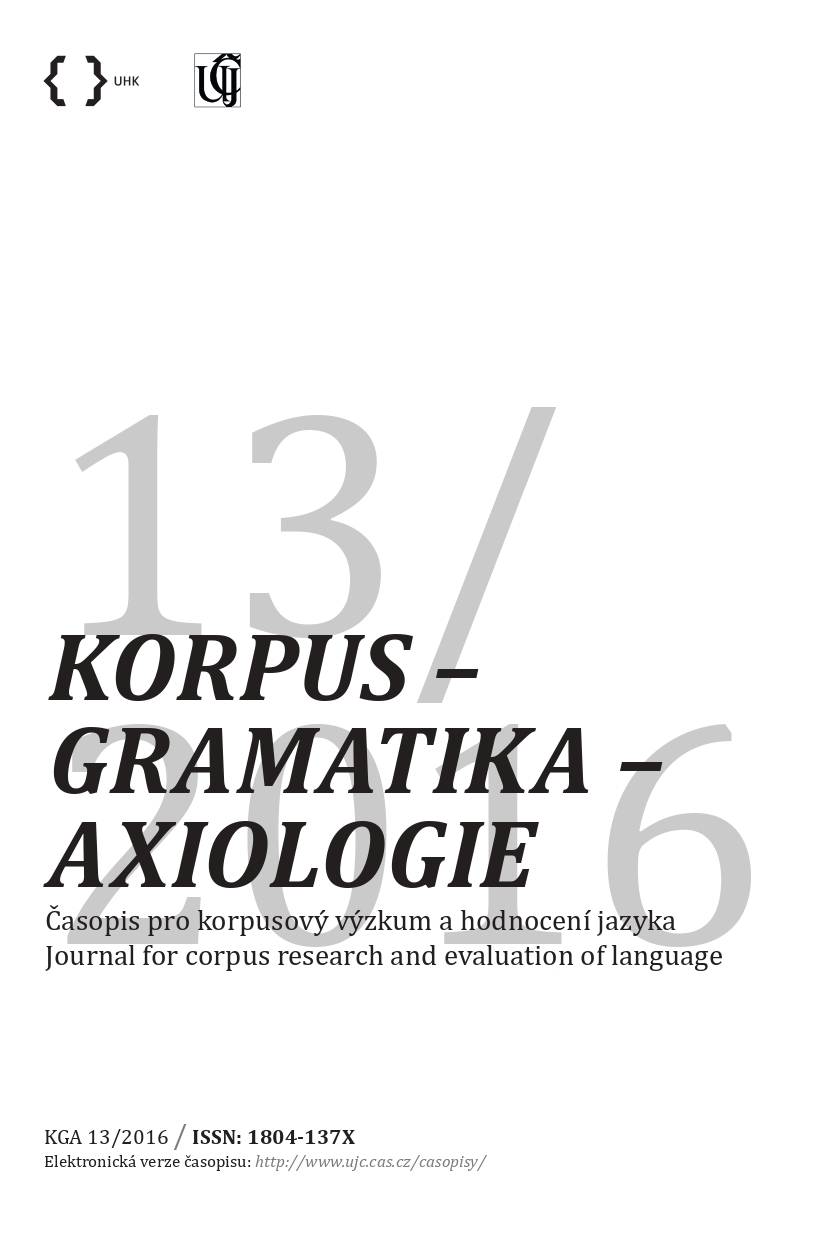Monokolokabilní slova v češtině: jejich hlavní aspekty
Monocollocable Words in Czech. Their Main Aspects
Author(s): František ČermákSubject(s): Language and Literature Studies, Theoretical Linguistics
Published by: AV ČR - Akademie věd České republiky - Ústav pro jazyk český
Keywords: monocollocable words; language periphery; combination
Summary/Abstract: Monocollocable words are such words and word forms that occur in a single lexical combination only or in very few, whose number is severely restricted and set. Practically, they are found as parts of set idioms and multi-word terms. They are found in many other languages, cf. English tenterhooks or Russian bakluši. Czech examples dát/dostat najevo, na viděnou, je mi líto, říct/mluvit/hrát nahlas, je známo, je zapotřebí, být třešničkou na dortu, není divu, jít/chodit pěšky, dát/dostat zadarmo illustrate this in more detail, showing, at the same time, that there might be a limited variation found, too, but, above all, that these are, in fact, no full-fledged words, lacking most of their basic characteristics, such as meaning, word-class membership, etc. In the sense of their severely limited combinatorial capacity, these words, less known under such alternative labels as cranberry words, form a substantial and irregular periphery of language and its lexicon. The contribution briefly comments on some of their aspects and suggests that broadly some classes or types can be recognized.
Journal: Korpus - gramatika - axiologie
- Issue Year: 2016
- Issue No: 13
- Page Range: 3-12
- Page Count: 10
- Language: Czech

